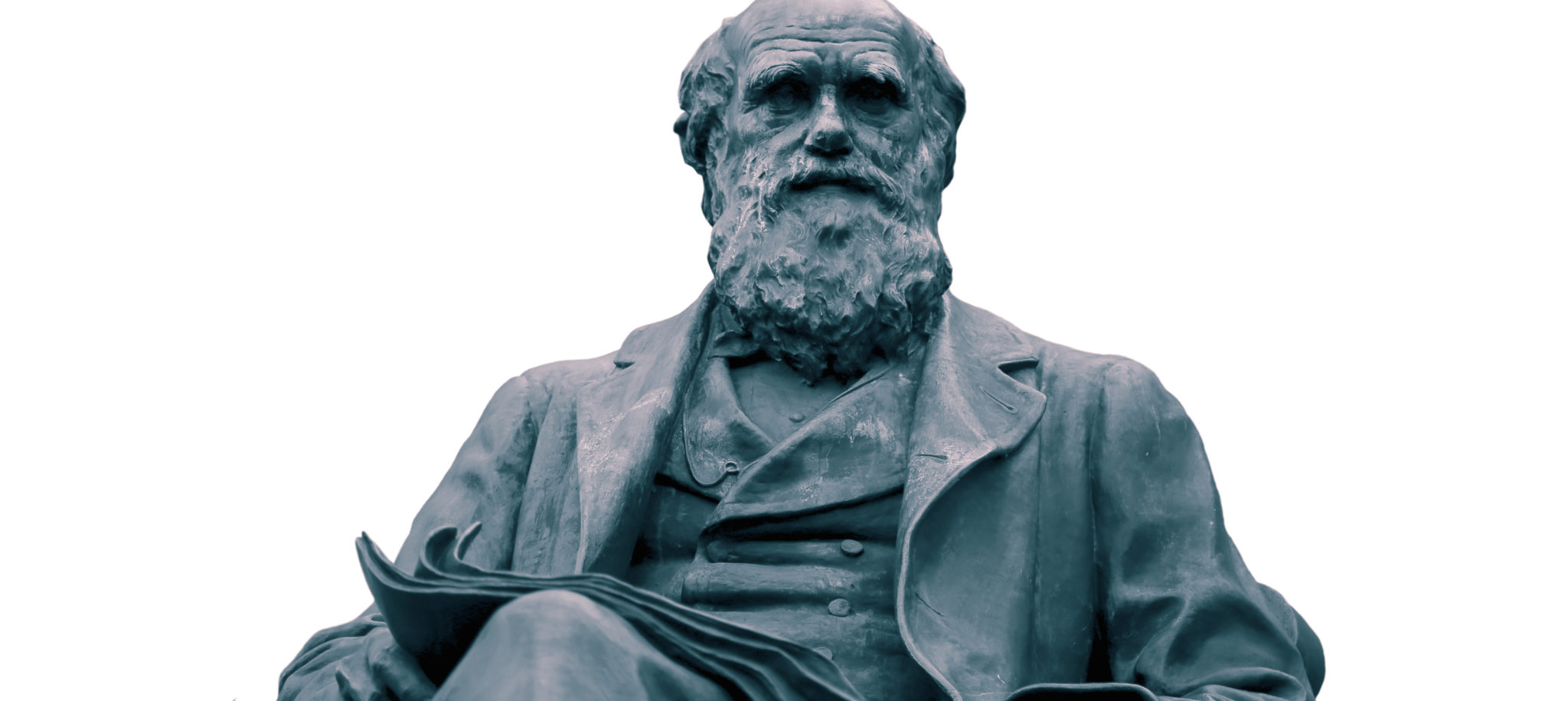How Darwin’s Lifelong Mentor United Science and Faith
As a student at the University of Cambridge, Charles Darwin became the protégé of a renowned professor of botany. This professor helped Darwin organize his specimens from the famous voyage on the HMS Beagle and corresponded with Darwin throughout his life. The man was John Stevens Henslow, who in addition to his post at Cambridge was a committed philanthropist and parish priest. And though Darwin adopted belief in an atheistic form of evolution, Henslow maintained his faith in God to his death and thought that Darwin’s theories rested on unprovable assumptions. Darwin, for his part, felt that people were drawing “imaginary lines” when they did not follow the principle of natural selection through to its natural conclusion.
But what is most amazing about Henslow is not how he argued for a particular view, but how he lived out his faith as a scientist. In today’s polarized culture, discussions about science and faith often become heated debates where each side looks upon the other with suspicion and/or condescension. Henslow offers us an example of how to integrate science into a life of faith so that we spread the aroma of Christ rather than discord and distrust. This article discusses four ways that Henslow achieved this unity, both in his interactions with Darwin and with broader society.
- By respecting those with whom he disagreed
Henslow did not try to discredit his pupil or malign his character when Darwin published On the Origin of Species. Henslow defended Darwin’s integrity as a scientist from those who questioned his character in order to undermine Darwin’s teaching on evolution. Henslow also maintained an active correspondence with Darwin even though they disagreed on this crucial topic. And while Darwin could not persuade Henslow of his views, he still appreciated the opportunity to talk and even collaborate on occasion with his old mentor.
This attitude extended beyond science and faith and into the political realm. In a letter to Darwin regarding disagreements between the Tory and Whig parties—who were opposing factions in eighteenth century England—Henslow says, “Whatever you become I know it will be from honest conviction, and therefore tho’ I shan’t change my principles myself I shall be quite content to allow you to change yours without thinking the worse of you for so doing . . . we will now agree not to let our disagreement (if it should turn out so) trouble us.”1 We could all learn much from Henslow’s ability to maintain deep friendship despite disagreement on strongly held convictions.
2. By demonstrating kindness and integrity in personal relationships
These two excerpts from a letter Darwin wrote show how Henslow demonstrated the Christian virtues of hospitality, humility, patience, integrity, and selflessness in his interactions with his pupil long before Darwin was famous.
As time passed on at Cambridge I became very intimate with Professor Henslow, and his kindness was unbounded; he continually asked me to his house, and allowed me to accompany him in his walks. He talked on all subjects, including his deep sense of religion, and was entirely open. I owe more than I can express to this excellent man. . . . During my five years voyage on the Beagle, he regularly corresponded with me and guided my efforts; he received, opened, and took care of all the specimens sent home in many large boxes; but I firmly believe that, during these five years, it never once crossed his mind that he was acting towards me with unusual and generous kindness.2
During the years when I associated so much with Professor Henslow, I never once saw his temper even ruffled. He never took an ill-natured view of any one’s character, though very far from blind to the foibles of others. . . . A man must have been blind not to have perceived that beneath this placid exterior there was a vigorous and determined will. When principle came into play, no power on earth could have turned him one hair’s breadth.3
3. By using his knowledge and influence to help others
Henslow made numerous contributions to society and looked after the welfare of others with his gifts. Perhaps the best example of his exemplary character came from his time as an Anglican priest and rector of Hitcham, a rural parish in Suffolk. When Henslow began at the parish, “ignorance, crime, and vice” were rampant and the church nearly empty. In addition, many of the village cottages were “old, clay-walled, badly thatched and often totally undrained, with the whole family sleeping in a single room.” 4 Henslow, rather than simply assuming a preaching role at his new church, at once set about helping the congregation in practical ways.
He set up a village school, a series of self-help clubs (coal for heat, clothing for the children, medical aid, and a “wife’s society”), implored the landed gentry (landowners) to treat their workers more fairly, and helped farmers get better yields from their crops by using the latest advances in agriculture. His sincere concern for his parishioners was not lost on Darwin.
I think he cared somewhat less about science, and more for his parishioners. . . . In one of the bad years for the potato, I asked him how his crop had fared; but after a little talk I perceived that, in fact, he knew nothing about his own potatoes, but seemed to know exactly what sort of crop was in the garden of almost every poor man in his parish.5
Henslow also set up a museum to educate the working classes on natural history, which included a library and regular lectures. He even taught a class on botany to the village school children, which required them to learn technical terms such as “monocotyledons” and “Thalamiflorae” before they could even be admitted to the class. Henslow collected over 400 species of plants with his young pupils, teaching them to collect, press, and label them. His most gifted students became assistants, one of whom, Harriet Sewell, went on to receive a scholarship and serve as both a teacher and governess.
4. By recognizing the limits of science
Henslow discussed the thesis of Darwin’s book with author Leonard Jenyns, who gave Darwin his place on the Beagle due to ill health and wrote a memoir on Henslow. In that memoir Henslow directed a twofold criticism at Darwin’s theory: (1) it rests on too many assumptions that “might or might not be true,” and (2) it leaves no room for God’s intervention in history. Both points suggest that scientists ought to exhibit greater humility in scientific inquiry. For Henslow, an explanation of the origin of species was as intractable as an explanation for the origin of evil.6
Henslow did not hold this position on Darwin’s theory because of an unwillingness to entertain scientific explanations for biblical events. For example, regarding the Flood, Henslow said, “I see no reason for supposing that he (God) did not employ the ordinary means of nature as the instruments of his operation.”7 But whether one agrees that there is sufficient evidence to warrant belief in molecules-to-man evolution, Henslow’s second criticism remains. Henslow’s life is a testimony of practicing and championing scientific inquiry. But he also knew that science had its limits and researchers must not allow an explanation of how something works to rule out the explanation of why something is there in the first place or for what purpose it was made.
As C. S. Lewis says,
Science works by experiments. It watches how things behave. Every scientific statement in the long run, however complicated it looks, really means something like, “I pointed the telescope to such and such a part of the sky at 2:20 a.m. on January 15th and saw so-and-so. . . .” Do not think I am saying anything against science: I am only saying what its job is. . . . But why anything comes to be there at all, and whether there is anything behind the things science observes—something of a different kind—this is not a scientific question. If there is “Something Behind,” then either it will have to remain altogether unknown to men or else make itself known in some different way.8
Henslow recognized that no matter how advanced humanity becomes scientifically, greater understanding does not rule out God’s work in history. God is not an explanation for how the universe operates (where thunder comes from, why the stars move across the sky, etc). Rather, God is an explanation for why the universe exists at all and how the laws of nature originated. He is the Creator.
Endnotes
1. S. M. Walters & E. A. Stow, Darwin’s Mentor: John Stevens Henslow, 1796–1861 (Cambridge, UK: Cambridge University Press, 2001), 117.
2. Walters & Stow, Darwin’s Mentor, 117.
3. Leonard Jenyns, Memoir of John Stevens Henslow, 1862 (Whitefish, MT: Kesssinger Publishing, 2010), 54.
4. Walters & Stow, Darwin’s Mentor, 188.
5. Jenyns, Memoir, 54.
6. A modern book that argues along the same lines is David Berlinski’s The Devil’s Delusion: Atheism and Its Scientific Pretensions (New York: Basic Books, 2009).
7. Walters & Stow, Darwin’s Mentor, 162.
8. C. S. Lewis, Mere Christianity (New York: HarperOne, 2015), 23.






